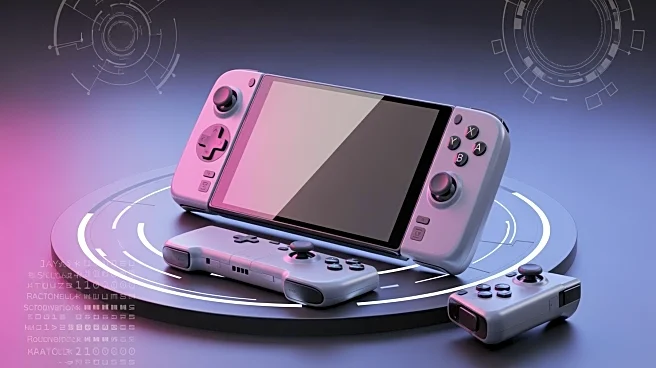What's Happening?
Nintendo President Shuntaro Furukawa has indicated that the company does not plan to increase the price of the Switch 2 console despite rising component costs and recent price hikes by competitors Sony
and Microsoft. During a shareholder Q&A session, Furukawa stated that Nintendo believes it can maintain profitability through ongoing mass production efforts, which may offset the increased costs of materials. He noted that unless there are significant changes in external factors, such as tariffs, the current price point for the Switch 2 will remain stable. This decision comes after Nintendo raised prices for the original Switch and its accessories earlier this year.
Why It's Important?
The decision by Nintendo to maintain the current price of the Switch 2 is significant in the context of the gaming industry, where competitors have recently increased prices due to economic pressures. By keeping the price stable, Nintendo may attract consumers who are sensitive to price changes, potentially boosting its market share. This move also reflects Nintendo's confidence in its production efficiencies and cost management strategies. However, if external factors like tariffs change, Nintendo may need to reassess its pricing strategy, which could impact its profitability and competitive position.
What's Next?
Nintendo will continue to monitor external economic factors, such as tariffs, which could influence future pricing decisions. The company plans to maintain its profitability through mass production efficiencies, but any significant changes in the economic environment may necessitate a reevaluation of its pricing strategy. Stakeholders, including consumers and investors, will be watching closely to see how Nintendo navigates these challenges while maintaining its competitive edge in the gaming industry.
Beyond the Headlines
Nintendo's decision not to increase the Switch 2's price highlights the company's strategic focus on long-term customer loyalty and market stability. By resisting immediate price hikes, Nintendo may strengthen its brand reputation as a consumer-friendly company, potentially leading to increased customer retention and satisfaction. This approach could also set a precedent in the industry, influencing how other companies manage pricing amid economic fluctuations.










